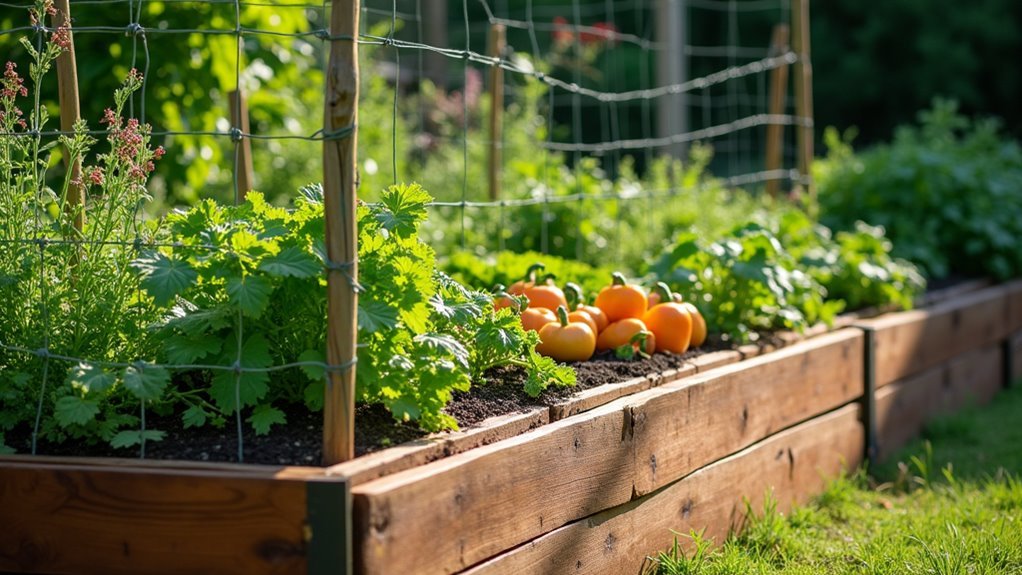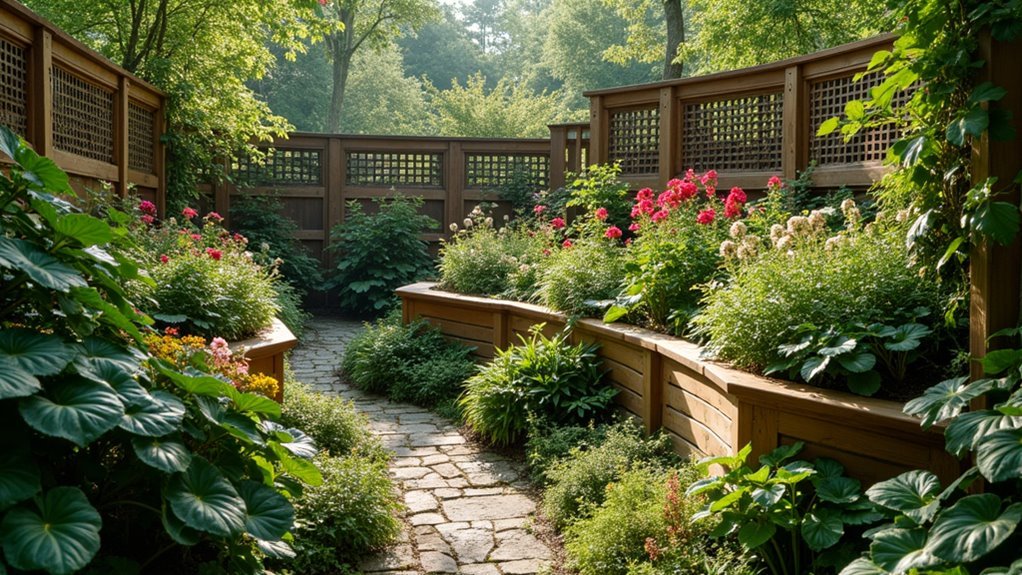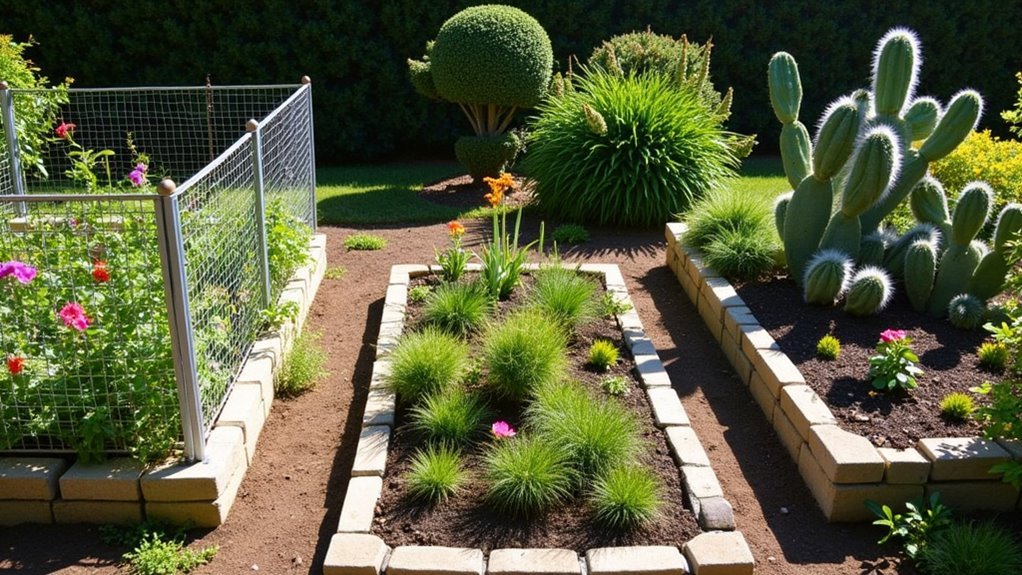You can protect your garden from raccoon raids using three proven designs: elevated raised beds at 2-3 feet high with hardware cloth barriers, strategic plant placement featuring thorny perimeter plants like barberry combined with natural deterrents such as marigolds and hot peppers, and multi-level structures with 4-6 feet tall integrated fencing using heavy gauge materials. These approaches create physical obstacles while incorporating plants raccoons naturally avoid. Master these techniques to transform your vulnerable garden into an impenetrable fortress.
Elevated Raised Bed Systems With Protective Barriers

When raccoons consistently raid your garden, elevated raised bed systems offer one of the most effective deterrent solutions.
You’ll want to construct your elevated raised beds at 2-3 feet high, creating a physical challenge that raccoons struggle to overcome. Install protective barriers like hardware cloth or chicken wire around the perimeter to prevent underground intrusion.
Design access panels that allow easy maintenance while maintaining security against persistent pests. Adding mesh or row covers provides an additional layer of protection that deters raccoons from reaching your plants.
You’ll need to regularly monitor and secure these systems to maintain their effectiveness. This thorough approach combines height, barriers, and covers to create an impenetrable fortress protecting your valuable garden crops.
Strategic Plant Placement and Natural Deterrent Landscaping
Beyond physical barriers, you can design your garden layout to naturally discourage raccoon intrusion through strategic plant placement and deterrent landscaping.
Position thorny plants like barberry around your garden’s perimeter, as raccoons avoid sharp textures. Incorporate natural deterrents such as marigolds, lavender, and garlic throughout your beds—their strong scents repel these masked bandits effectively.
Strategic placement of barberry’s thorns and aromatic plants like marigolds creates an effective natural defense system against raccoon invaders.
Design raised beds with sloped sides to eliminate the flat surfaces raccoons prefer for climbing and digging. Plant crops they dislike, including hot peppers and rosemary, to make your garden less appealing.
Create natural barriers using taller plants combined with dense foliage to obstruct navigation paths. This layered approach makes vulnerable areas harder to access while maintaining an attractive landscape that works against raccoon preferences.
Multi-Level Garden Structures With Integrated Fencing

Physical barriers take on added effectiveness when you build multi-level garden structures with integrated fencing systems.
Design these structures with fencing that’s 4-6 feet tall to effectively keep raccoons from accessing your plants. You’ll want easy access for maintenance, so incorporate removable panels that won’t compromise security.
Replace standard welded wire with heavy gauge hardware cloth—it prevents raccoons from reaching through gaps to grab your produce. Anchor everything securely with earth staples to stop these persistent creatures from overturning or digging under your barriers.
Multi-level garden structures maximize growing space while maintaining protection.
Enhance your defenses by adding motion-activated devices around the perimeter. This combination creates an impenetrable fortress that keeps raccoons out while giving you convenient garden access.
Frequently Asked Questions
How to Prevent Raccoons From Eating in the Garden?
You can prevent raccoons from eating in your garden by installing tall fences with overhangs, using motion-activated deterrents, applying strong-smelling repellents, and keeping your garden clean of fallen fruit.
Is There a Plant That Repels Raccoons?
You can’t find plants proven to repel raccoons, but you’ll have better luck with strong-smelling herbs like mint, rosemary, and lavender that may deter them with their potent scents.
What Smell Do Raccoons Hate the Most?
You’ll find raccoons hate cayenne pepper’s pungent scent most effectively. They’re also repelled by ammonia’s sharp odor, predator urine, and strong fragrances like Irish Spring soap, though you’ll need frequent reapplication.
What Will Raccoons Not Walk On?
You’ll find raccoons won’t walk on unstable surfaces like smooth metal, wet areas, or gravel that makes noise. They’ll also avoid sharp materials, strong-scented surfaces with ammonia, and narrow elevated paths without support.
In Summary
You’ve got three solid strategies to protect your garden from raccoon raids. Whether you’re building elevated beds with barriers, using strategic plant placement with natural deterrents, or installing multi-level structures with integrated fencing, you’ll create obstacles that’ll discourage these persistent visitors. Don’t rely on just one method – combine these approaches for maximum effectiveness. Your vegetables and fruits will stay safe when you implement these raccoon-resistant garden designs consistently.





Leave a Reply